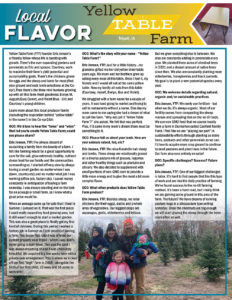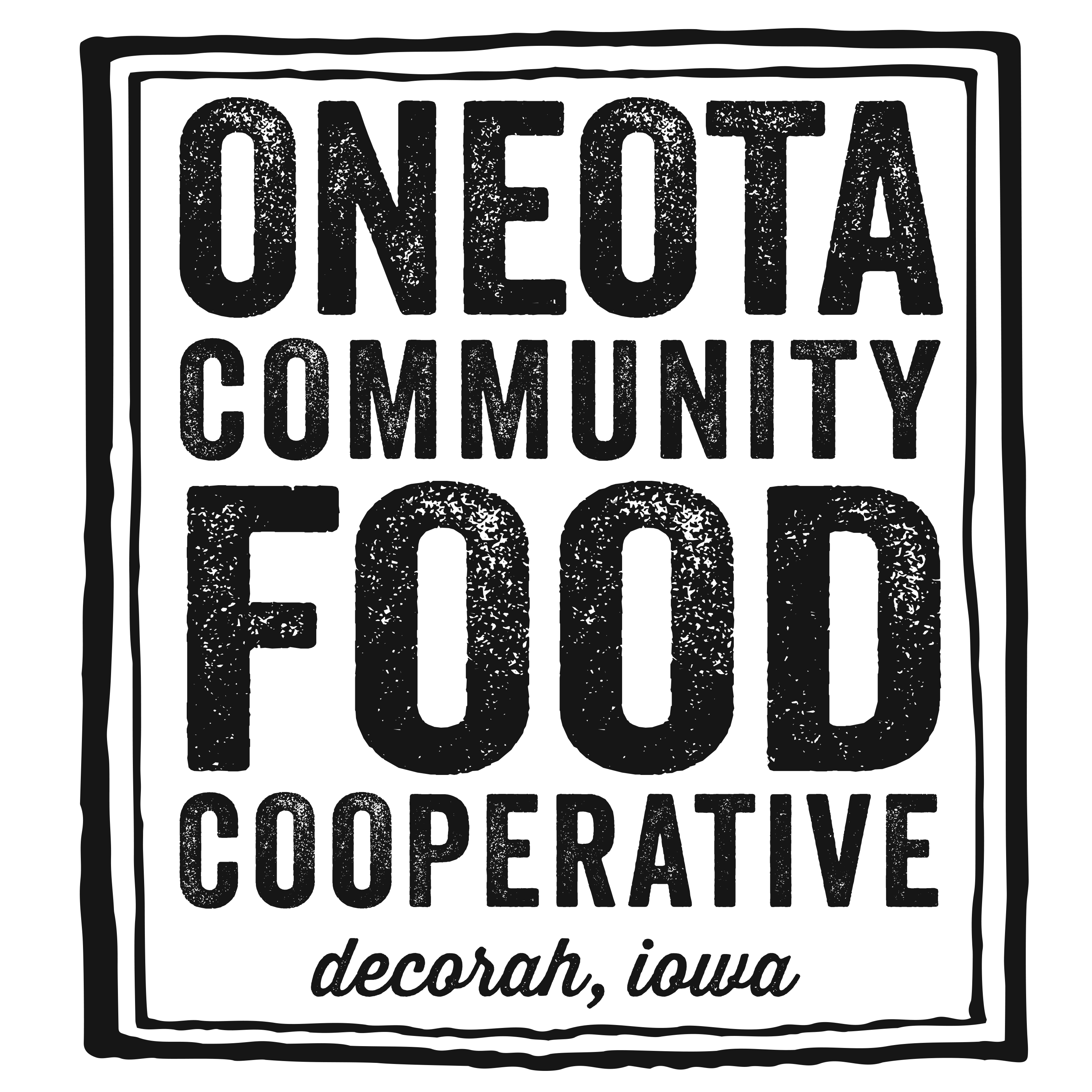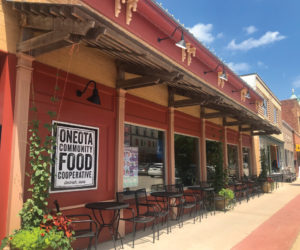 Yellow Table Farm (YTF) founder Eric Jensen’s a friendly fellow whose life is bursting with growth. There’s the ever-expanding gardens and perennials as Eric and spouse, Courtney, work to maximize their farm’s yield potential and sustainability goals. There’s the chickens grown for eggs and the sheep and lamb for meat (find your ground and rack lamb selections at the Co-op!).Then there’s the three mini humans growing up with all this farm-fresh goodness: Evelyn M, August (Gus) Comet, and Violet Blue – Eric and Courtney’s young children.
Yellow Table Farm (YTF) founder Eric Jensen’s a friendly fellow whose life is bursting with growth. There’s the ever-expanding gardens and perennials as Eric and spouse, Courtney, work to maximize their farm’s yield potential and sustainability goals. There’s the chickens grown for eggs and the sheep and lamb for meat (find your ground and rack lamb selections at the Co-op!).Then there’s the three mini humans growing up with all this farm-fresh goodness: Evelyn M, August (Gus) Comet, and Violet Blue – Eric and Courtney’s young children.
Learn more about this local producer family (including the inspiration behind “yellow table” in the name!) in this Co-op Q&A:
OCC: We’d love to hear the “hows” and “whys” that led you to create Yellow Table Farm; could you please share?
Eric Jensen, YTF: I’ve always dreamt of sustaining a family from the bounty of a farm. I felt like farming would be a great opportunity to care for the soil, grow extremely healthy, nutrient-dense food for our family and the communities surrounding us. I started off very slow by always having a small garden no matter where I was (town, country etc) and no matter what job I was working (office job, factory etc). I saved money constantly in anticipation of buying a farm someday. I was always scouting and on the look for an acreage or small farm, so I knew what a good price would be.
When an acreage came up for sale that I liked in Sumner, I jumped on it. That was the first place I could really expand my food growing area, but it still wasn’t enough to start a market garden. This was also a great place to finally get my first herd of chickens. During this period I worked a factory job in Sumner as I still dreamt of owning a farm. Two house flips later I was offered our current property near Tripoli – which I was 100% never going to turn down. This was the spot I was always dreaming of and it was absolutely beautiful. We acquired it a few weeks later with a private sale arrangement. This is where we kicked off our first “legit” farm in 2018 – alongside the birth of our first child, 10 ewes and 15 acres to work with!
OCC: What’s the story with your name – “Yellow Table Farm?”
Eric Jensen, YTF: Just for a little history…my grandma gifted me her old yellow diner table years ago. My mom and her brothers grew up eating every meal at this table. Once I had it, my friends and I would all eat at the same yellow table. Now my family all eats from this table (Courtney, myself, Evelyn, Gus and Violet).
We struggled with a farm name for a couple of years. It was hard going to market and trying to sell to restaurants without a name. One day my mom came to me saying she had a dream of what to call the farm. “Why not call it ‘Yellow Table Farm’?” she asked. We felt that was perfect. Plus, if it came in my mom’s dream there must be something to it.
OCC: Please tell us about your lamb. How are your animals raised, fed, etc?
Eric Jensen, YTF: We raise Katahdin hair sheep and lambs. These sheep are rotationally grazed on a diverse pasture mix of grasses, legumes and other healthy things such as plantain and chicory. We also decided to supplement with small portions of non-GMO corn to provide a little more energy and to give the meat a bit more complex flavor.
OCC: What other products does Yellow Table Farm produce?
Eric Jensen, YTF: Besides sheep, we raise chickens (for their eggs), ducks and a whole array of vegetables. Our biggest crops are asparagus, garlic, elderberries and lettuce. But we grow everything else in between. We also are constantly adding in perennials every year. We planted three acres of chestnut trees in 2021 and a decent amount of native trees since then. We also are constantly planting more elderberries, honeyberries and black currants. My goal is to plant a new perennial species every year.
OCC: We welcome details regarding natural, organic and/or sustainable practices.
Eric Jensen, YTF: We rarely use fertilizer – but when we do, it’s always organic. Most of our fertility comes from composting the sheep manure and spreading that on the no-till beds. We use non-GMO feed that we source locally from a farm in Dunkerton called Canfield Family Farm. I feel like we are “playing our part” in sustainability efforts through planting as many trees, pastures and other perennials as we can. I’d love to acquire more crop ground to continue to seed pastures and plant trees in the future. Our farm also runs entirely on solar!
OCC: Specific challenges? Success? Future plans?
Eric Jensen, YTF: One of our biggest challenges is labor. It’s hard to find people that like this type of work and are into the daily practice of farming. We’ve found success in the no-till farming method. It’s been a hard road, but I really think we are gaining some ground in this area of the farm. The future? We have dreams of running pasture hogs in a silvopasture type setting someday. Once the chestnuts are big enough we will start grazing the sheep through the trees more often as well.



